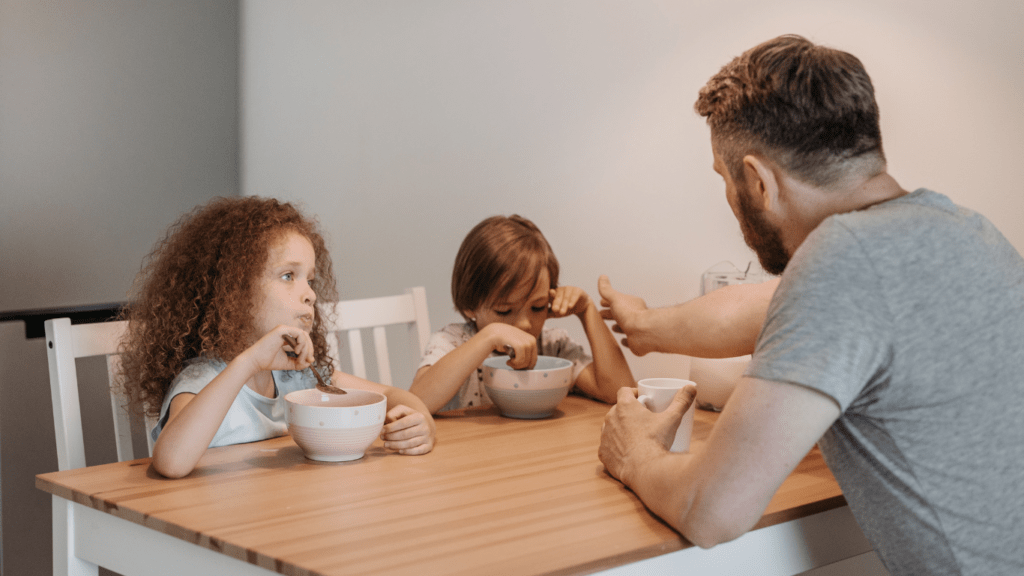Navigating co-parenting with an ex-partner can be a challenging journey filled with emotions and complexities. In my experience, maintaining a civil relationship and prioritizing the well-being of your children is crucial for their emotional stability and growth.
When it comes to co-parenting, it’s essential to set aside personal differences and focus on creating a positive and harmonious environment for your kids. In this article, I’ll share valuable insights and practical tips on how to co-parent effectively with your ex-spouse while keeping the children at the center of your decisions.
From communication strategies to setting boundaries, I’ll provide actionable advice to help you navigate this delicate balance with confidence and respect. By approaching co-parenting with empathy and a shared goal of nurturing your children’s happiness, you can build a strong foundation for successful co-parenting post-divorce.
Understanding the Importance of Co-Parenting with Your Ex
Emphasizing the critical role of co-parenting with an ex-partner, I believe that creating a harmonious relationship post-divorce is vital for the well-being of our children. Prioritizing their needs over personal differences is key to ensuring a stable and nurturing environment for them.
I’ll delve into the significance of effective co-parenting in promoting our children’s happiness and overall development.
Setting Clear Communication Strategies
When co-parenting with your ex, establishing clear communication strategies is essential for a successful and harmonious relationship focused on the well-being of your children.
Establishing Boundaries for Effective Co-Parenting
To ensure effective co-parenting, it’s crucial to establish boundaries that respect each other’s roles and responsibilities. Here are some key steps I recommend for setting boundaries in co-parenting:
- Define Clear Roles: Clearly define each parent’s responsibilities regarding the children’s daily routines, activities, and decision-making processes.
- Establish Communication Guidelines: Agree on preferred methods of communication – whether it’s through text, email, or a co-parenting app – and establish boundaries for communication frequency and tone.
- Respect Each Other’s Privacy: Avoid prying into each other’s personal lives and respect boundaries around personal space and time.
- Stick to Agreed-upon Schedules: Honor visitation schedules, pick-up and drop-off times, and any other agreements made regarding the children’s care.
Establishing and respecting boundaries is key to effective co-parenting and promoting a healthy environment for your children’s growth and happiness.
Prioritizing the Children’s Well-Being
Ensuring the well-being of the children is my top priority when it comes to co-parenting with an ex-partner. By focusing on the kids’ needs above all else, I aim to provide them with a stable and nurturing environment post-divorce.
To prioritize the children’s well-being effectively, I believe it’s crucial to maintain open and respectful communication with my ex-partner. This enables us to make decisions together that are in the best interest of our children.
It’s essential to keep the lines of communication clear and focused on the kids’ welfare. Additionally, setting clear boundaries with my ex-partner is key to creating a healthy co-parenting dynamic.
By defining roles, respecting each other’s privacy, and sticking to agreed-upon schedules, we can ensure consistency and stability for our children. Boundaries help us establish a framework that promotes the children’s happiness and emotional development.
In essence, by placing the children at the center of our co-parenting efforts, we can create a supportive and loving environment that allows them to thrive despite the challenges of divorce. By prioritizing their well-being, my ex-partner and I can work together harmoniously to provide the best possible upbringing for our children.
Navigating Co-Parenting Challenges Together
In navigating co-parenting challenges together, I prioritize effective communication and setting clear boundaries with my ex-partner. As co-parents, it’s crucial to define our roles and establish communication guidelines for the benefit of our children.
Respecting each other’s privacy and honoring agreed-upon schedules lay a strong foundation for a healthy co-parenting dynamic. By proactively defining roles, my ex-partner and I ensure clarity in our responsibilities towards our children, promoting a sense of stability in their lives.
Setting communication guidelines helps us maintain a respectful and constructive dialogue, focusing on co-parenting matters while avoiding conflicts from our past relationship. Respecting each other’s privacy is essential in co-parenting; it cultivates trust and showcases mutual respect.
By honoring boundaries and privacy, we create a comfortable environment for cooperation and decision-making, fostering a positive atmosphere for our children. Adhering to agreed-upon schedules is key to ensuring consistency and predictability in our children’s routines.
By respecting the schedule, we demonstrate reliability and commitment, instilling a sense of security in our children’s lives. In navigating co-parenting challenges together, my ex-partner and I prioritize our children’s well-being above all else.
By fostering effective communication, setting clear boundaries, and adhering to agreed-upon schedules, we create a supportive environment that allows our children to thrive despite the obstacles of divorce.




